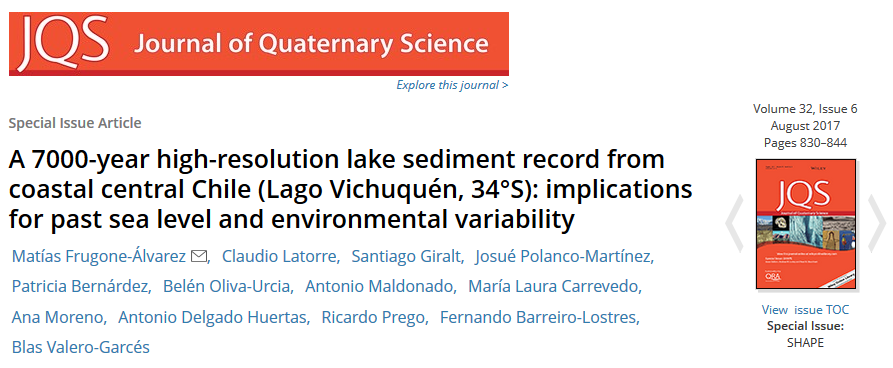September 14, 2017
Published by BC3Research at September 14, 2017
Categories
We present a 7-ka environmental reconstruction based on sedimentological and geochemical data from Lago Vichuquén, a coastal eutrophic lake in central Chile (34°48′S, 72°03′ W, 4 m a.s.l.). A relatively shallow and restricted marine environment with low productivity, high detrital input and dominant anoxic conditions in the Vichuquén Basin occurred from 7.0 to 6.5 cal ka BP.
September 27, 2017
Published by BC3Research Luis Mª Abadie Ibon Galarraga Elisa Sainz de Murieta at September 27, 2017
Categories
Investment decisions in adaptation are usually made under significant uncertainty due to climate change and socio-economic trends. In this study, we propose three ways to incorporate climate and socio-economic uncertainty into the assessment of an adaptation infrastructure designed to cope with flood-risk in the city of Bilbao.
September 29, 2017
Published by BC3Research Luis Mª Abadie Ibon Galarraga at September 29, 2017
Categories
The cement sector is highly intensive in CO2 emissions and is the second biggest industrial sector in terms of emissions after the electricity generation sector. It emits CO2 from the combustion of fossil fuels, the calcination process and, indirectly, from electricity consumption. The ambitious climate change policy in the EU means that carbon prices and fuel prices are two very important sources of uncertainty that may affect the competitiveness of the sector. This paper focuses on understanding the risk associated with the future price of European Union Emission Trading System allowances.
March 5, 2018
Published by Anil Markandya Mikel González-Eguino Iñaki Arto Jon Sampedro cristina.pizarro at March 5, 2018
Categories
Although the co-benefits from addressing problems related to both climate change and air pollution have been recognised, there is not much evidence comparing the mitigation costs and economic benefits of air pollution reduction for alternative approaches to meeting greenhouse gas targets. We analysed the extent to which health co-benefits would compensate the mitigation cost of achieving the targets of the Paris climate agreement (2°C and 1·5°C) under different scenarios in which the emissions abatement effort is shared between countries in accordance with three established equity criteria.




